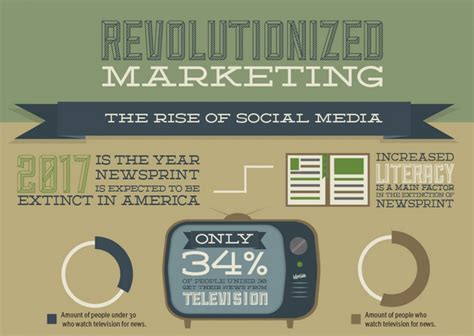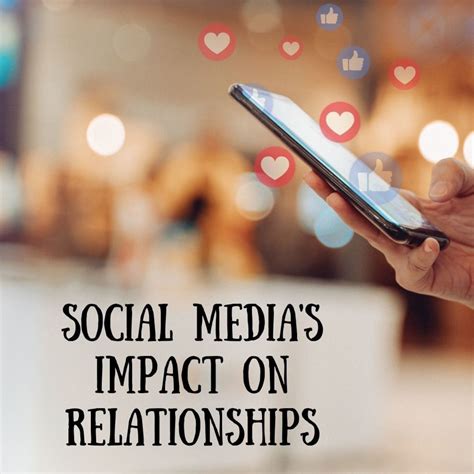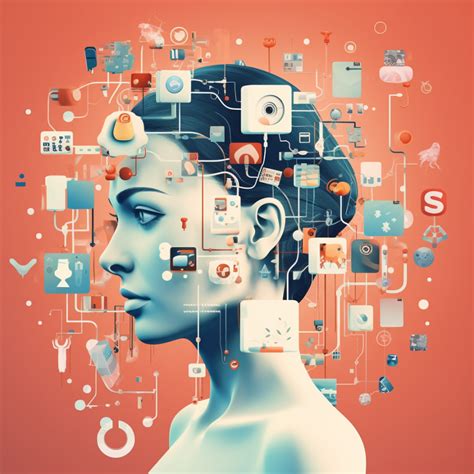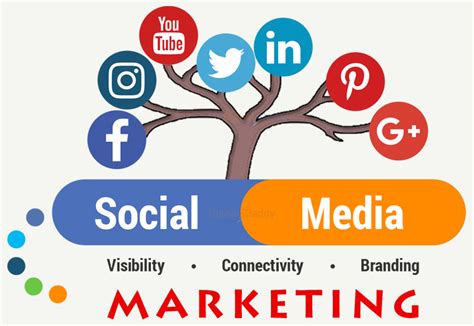Through the power of digital platforms, a significant transformation has been ignited within our interconnected world. These online channels, which have become intrinsic to our daily lives, have seamlessly woven themselves into the very fabric of our global community. By harnessing the potential of this advancing virtual realm, individuals now have the unprecedented ability to connect, collaborate, and communicate across vast distances. However, this revolution has not come without its complexities and repercussions.
In recent years, the advent of various online platforms has revolutionized the way we engage and interact with others. These digital landscapes have bestowed upon us a newfound autonomy to express ourselves freely, fostering a sense of liberation and empowerment. The ability to create and consume diverse forms of content, be it text, images, or videos, has opened up new avenues for creativity and self-expression. Moreover, these platforms have effortlessly brought together individuals from disparate backgrounds, forging digital communities united by common interests.
However, embedded within the very essence of these virtual spaces are challenges that cannot be overlooked. The omnipresence of digital platforms has given rise to concerns regarding privacy and security. The constant sharing of personal information and the blurring of boundaries between the private and public realms have fueled apprehensions about the loss of individuality and the infringement of personal space. Moreover, the rapid dissemination of information through these platforms has cultivated an environment where misinformation and fake news can proliferate unchecked, impacting the way we perceive reality and shaping public opinions.
Amidst this amalgamation of benefits and drawbacks, it is crucial to acknowledge and evaluate the profound influence of digital platforms on our society. As we delve deeper into the intricacies of this virtual realm, we must strive to navigate its intricacies with discernment and mindfulness, ensuring that the advantages of connectivity and collaboration outweigh the potential perils.
The Emergence of Social Networking in Modern Culture
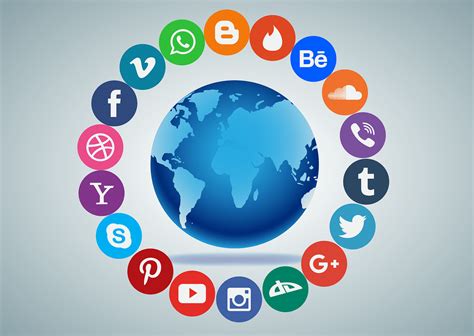
In the contemporary era, the advent and subsequent proliferation of online platforms have revolutionized the way people interact and engage with each other. These virtual networks have swiftly become an integral part of our daily lives, enabling individuals to connect, share information, and form communities like never before. The rise of social networking platforms has forever altered the dynamics of communication, providing both benefits and challenges that shape our society in profound ways.
- Connectedness: One of the remarkable aspects of social networking is its ability to bridge geographical boundaries and foster connections between people from various backgrounds. These platforms have paved the way for individuals to effortlessly communicate with friends, family, and even strangers across the globe, fostering a sense of global community.
- Information Sharing: In today's fast-paced world, social media allows for the rapid dissemination of news, ideas, and knowledge. Users can share articles, videos, and personal experiences, enabling the exchange of diverse perspectives and facilitating discussions on important social issues.
- Opportunities for Self-Expression: Social networking sites provide individuals with the means to express themselves creatively and authentically. Users can showcase their talents, opinions, and interests through posts, photos, and videos, empowing them to build a personal brand and connect with like-minded individuals.
- Impact on Relationships: While social media strengthens existing relationships, it also introduces new complexities. Maintaining virtual connections can sometimes lead to a superficial sense of closeness, potentially straining real-life interactions. Moreover, the curated nature of social media profiles can create unrealistic expectations and contribute to feelings of inadequacy or isolation.
- Information Overload: With the vast amount of content available on social media, individuals face the challenge of sifting through information to determine its accuracy and reliability. Misinformation and fake news can spread rapidly, leading to the erosion of trust in traditional sources of news and affecting public discourse.
- Privacy Concerns: The widespread use of social media has raised concerns about data privacy and security. Users must navigate the complexities of sharing personal information while ensuring their data is protected from unauthorized access and exploitation.
In conclusion, the rise of social networking sites has undeniably transformed our society, fostering global connectivity, facilitating information sharing, and providing opportunities for self-expression. However, it also poses challenges such as the impact on real-life relationships, information overload, and concerns regarding privacy. As we continue to embrace the benefits of social media, it becomes crucial to navigate its drawbacks responsibly while striving towards a digitally inclusive society.
Enhanced Communication and Connectivity
In the realm of digital interaction, the advent of social networking platforms has revolutionized the way individuals interact and connect with one another. These platforms have transformed communication into a dynamic and interconnected web of relationships, enabling people to bridge vast distances and foster connections that were once limited by physical boundaries.
The rise of social media has empowered individuals to effortlessly share their thoughts, ideas, and experiences with a global audience, transcending traditional communication barriers. It has bestowed upon people the ability to engage in real-time conversations and instantaneously disseminate information, forging a sense of interconnectedness that was unprecedented in pre-digital times.
Through social media, users can exchange messages, post updates, and share multimedia content, thereby enriching the way people communicate and fostering deeper connections. It enables individuals to stay connected with friends, family, and acquaintances regardless of their geographic location, allowing for the perpetuation of relationships even when physical interactions are not possible.
Furthermore, the enhanced communication and connectivity facilitated by social media platforms have played a pivotal role in connecting communities and fostering social movements. It has become a powerful tool for mobilizing support, raising awareness, and instigating collective action on a global scale. By enabling individuals to rally behind causes and share their perspectives, social media has become an influential force capable of driving social change.
In addition to its impact on personal connections and social movements, social media has also revolutionized the way businesses and organizations communicate with their customers and stakeholders. It has provided a platform for companies to engage directly with their target audiences, gather feedback, and tailor their offerings to meet the evolving needs and preferences of consumers. Through social media, businesses can now establish a two-way dialogue, reinforcing brand loyalty and fostering a sense of community among their customers.
However, despite the numerous benefits brought by enhanced communication and connectivity through social media, certain drawbacks exist. Privacy concerns, the spread of misinformation, and the potential for addiction are among the challenges arising from the rapid growth and widespread adoption of social networking platforms. It is crucial for individuals and society as a whole to navigate these complexities and strike a balance between the positive and negative aspects of this digital revolution.
Positive Influence of Social Networking
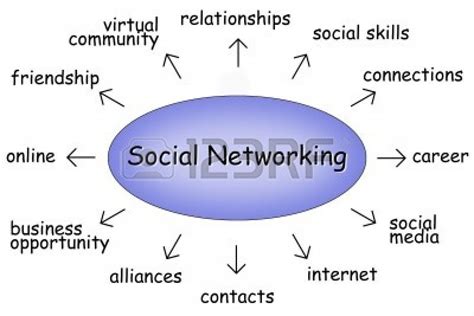
Social networking platforms have brought about numerous advantages to individuals and communities, enhancing their lives in various ways. In today's interconnected world, these digital networks have revolutionized communication, fostered the exchange of ideas, facilitated social connections, and empowered individuals to share their experiences and talents.
Enhanced connectivity: The rise of social media has drastically transformed the way people connect with one another. It has transcended geographical boundaries and brought individuals from diverse backgrounds closer, allowing for the formation of global communities. People can establish and maintain relationships with friends, family, and acquaintances, irrespective of their physical location.
Empowerment through self-expression: Social media platforms have provided individuals with a powerful outlet to express their thoughts, ideas, and aspirations. Users can voice their opinions on a wide range of topics, from social issues to personal experiences, encouraging meaningful dialogue and promoting empathy among users. Furthermore, social media has given a voice to marginalized groups, empowering them to advocate for their rights and create awareness about important issues.
Access to information and knowledge: Social media has become a valuable source of information, enabling users to stay updated on current events, cultural trends, scientific advancements, and more. It has democratized knowledge, making it easily accessible to people of all backgrounds and promoting lifelong learning. Social media platforms also provide a platform for experts and professionals to share their expertise, offering educational opportunities to users worldwide.
Opportunities for personal and professional growth: Social media platforms have opened new avenues for personal and professional development. Individuals can showcase their skills and talents, gaining recognition and opportunities for collaboration. Social networking sites have also become instrumental in job searching, networking, and building professional connections. Moreover, social media has facilitated entrepreneurship by empowering individuals to create and promote their businesses, reaching a wider audience than ever before.
In summary, social media has had a positive impact on society, increasing connectivity, enabling self-expression, providing access to information, and fostering personal and professional growth. However, it is crucial to recognize and address the potential drawbacks and challenges associated with social media usage to ensure its continued positive influence on individuals and communities.
Negative Effects on Mental Health
Modern technology and digital communication platforms have undoubtedly shaped the way society interacts and shares information. However, this digital revolution has also had a profound impact on individuals' mental well-being.
One prominent drawback of excessive social media usage is its detrimental effect on mental health. The constant exposure to carefully curated depictions of others' lives can foster feelings of inadequacy, leading to low self-esteem and a negative self-image. Comparing our own lives with the seemingly perfect lives of others can create a sense of dissatisfaction and even depression.
Moreover, the addictive nature of social media can have adverse consequences for mental health. Continuous scrolling through feeds can become a compulsive behavior, leading to a reduction in productivity, disturbed sleep patterns, and increased anxiety. The constant need for validation through likes and comments can create a vicious cycle, where self-worth becomes dependent on online approval.
Social media platforms can also contribute to the exacerbation of existing mental health issues. Cyberbullying and online harassment have become prevalent problems, causing significant emotional distress for individuals targeted by such behavior. The anonymity and distance provided by the online environment can embolden individuals to engage in hurtful actions they would not carry out face-to-face.
- Comparison and feelings of inadequacy due to curated representations of others' lives
- Addictive nature leading to reduced productivity and increased anxiety
- Dependency on online validation for self-worth
- Cyberbullying and online harassment causing emotional distress
In conclusion, while social media undoubtedly offers numerous benefits, it is crucial to acknowledge and address the negative effects it can have on mental health. Understanding these drawbacks not only helps individuals take proactive steps to protect their well-being but also encourages the development of safer and more supportive online communities.
Privacy Concerns and Data Security

With the widespread adoption of online platforms and digital communication, the issue of privacy and data security has become increasingly relevant. The use of various applications and social media platforms has brought convenience and connectivity to society, but it has also raised concerns about the protection of personal information and the potential misuse of data.
Privacy
One of the main concerns surrounding social media and online interactions is the issue of privacy. Users often provide personal information, photos, and preferences on these platforms, unaware of how their data may be collected and used by companies or even unauthorized individuals. This lack of control over personal information can lead to potential risks, such as identity theft, cyberbullying, or online scams.
Data Security
In addition to privacy concerns, the security of data stored and shared on social media platforms is a common issue. Instances of data breaches and hacking have become more frequent, exposing millions of users' private information and compromising their online safety. The threats to data security arise from vulnerabilities in the platform's infrastructure, weak passwords, or even malicious activities by third-party entities.
The Need for Awareness and Regulation
To address the privacy concerns and data security risks associated with social media, it is crucial to raise awareness among users about the potential dangers and educate them about the best practices for protecting their personal information. Additionally, regulations and policies need to be put in place to ensure that companies are transparent in their data collection and usage practices and are held accountable for any breaches that occur.
In conclusion, the convenience and connectivity provided by social media platforms also come with inherent privacy concerns and data security risks. It is essential for individuals to be vigilant about their personal information and for companies and policymakers to prioritize the protection of users' privacy and data when using these platforms.
Influence of Social Networking on Interpersonal Connections
Nowadays, the ubiquitous presence of online platforms has profoundly impacted the way people form and maintain relationships. Social networking sites have revolutionized the dynamics of interpersonal connections, shaping the course of human interaction in numerous ways.
The rise of social media has brought about both positive and negative repercussions for relationships. On the one hand, these platforms have opened up new avenues for individuals to connect and foster meaningful relationships regardless of geographical barriers. People from distinct backgrounds and cultures can now easily connect, expanding their social circles and embracing diversity. Furthermore, social media platforms provide opportunities to establish and maintain long-distance relationships, allowing partners, friends, and families to stay connected despite physical distances.
However, the influence of social media on relationships is not without its drawbacks. The excessive use of these platforms might lead to a decreased quality of face-to-face interactions, causing individuals to prioritize virtual connections over real-life relationships. Furthermore, the curated nature of social media profiles often fosters feelings of insecurity and comparison, which can negatively affect self-esteem and the quality of relationships. Moreover, issues such as cyberbullying, online harassment, and privacy concerns have emerged as potential risks, impacting the well-being and trust within relationships.
In conclusion, the advent of social media has undoubtedly transformed the dynamics of relationships, introducing a plethora of opportunities and challenges. Understanding and navigating the influence of social networking on interpersonal connections is essential in order to harness its benefits and mitigate the potential drawbacks for the overall well-being of individuals and society as a whole.
Impacts on News Consumption and Information Spread
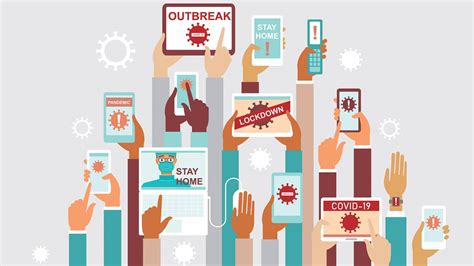
With the widespread adoption of various online platforms, the way people consume news and access information has undergone significant changes. This section examines the effects of these digital advancements on individuals' news consumption habits and the spread of information.
The advent of social media has revolutionized the way news is disseminated and consumed, resulting in both positive and negative consequences. On one hand, these platforms have provided individuals with unprecedented access to a wide range of news sources, empowering them to be more informed and engaged in current affairs. By offering a multitude of perspectives and alternative viewpoints, social media has diversified the news landscape and facilitated a more inclusive exchange of ideas.
- However, the abundance of information available on social media has also given rise to concerns regarding the spread of misinformation and fake news. With the ease of sharing and the lack of fact-checking, inaccurate or misleading information can reach a vast audience within seconds, potentially influencing public opinions and decisions.
- Furthermore, the algorithms and algorithms employed by social media platforms to curate content can inadvertently contribute to echo chambers and filter bubbles, where users are only exposed to information that aligns with their existing beliefs and preferences. This can result in individuals receiving a limited and biased perspective, hindering critical thinking and fostering polarization within society.
- Moreover, the reliance on social media as a primary source of news has raised concerns about the decline of traditional news outlets and the erosion of journalistic integrity. As news organizations struggle to adapt to the digital era, the quality and accuracy of reporting can be compromised, leading to a loss of trust in the media.
In conclusion, while social media has undoubtedly transformed the way news is consumed and information is spread, its impact is a double-edged sword. The accessibility and diversity of news sources are accompanied by the challenges of misinformation, filter bubbles, and the decline of traditional journalism. To effectively address these drawbacks, individuals must exercise critical thinking and media literacy, while platforms and news organizations must prioritize accurate reporting and responsible content curation.
FAQ
How has social media influenced society?
Social media has had a profound impact on society in numerous ways. It has revolutionized communication, breaking down barriers and allowing people to connect and share information easily. It has also played a significant role in shaping public opinion, as it provides a platform for individuals to express their views and be heard by a wider audience. Additionally, social media has transformed the way businesses operate, providing them with new marketing channels and opportunities to engage with customers.
What are some benefits of social media for individuals?
Social media offers several benefits for individuals. Firstly, it helps in staying connected with friends and family, regardless of their location. It also provides a platform to express oneself, share opinions, and engage in discussions on various topics. Furthermore, social media offers opportunities for networking and professional growth, enabling individuals to connect with potential employers or clients. Finally, social media platforms serve as a vast source of information and learning resources, allowing individuals to stay updated and access educational content.
What are some drawbacks of social media on society?
Although social media has its advantages, it also comes with drawbacks. One major concern is the impact on mental health, as excessive use of social media can lead to feelings of depression, anxiety, and loneliness. Moreover, the spread of fake news and misinformation is a rampant issue, negatively affecting public opinion and trust. Social media can also contribute to a decrease in face-to-face social interactions, leading to a lack of interpersonal skills. Lastly, privacy and security concerns arise due to the potential misuse of personal information.
How can social media be used for social good?
Social media has the power to bring about positive change and contribute to social good. It can be used to raise awareness about social issues, mobilize support for various causes, and connect individuals with volunteer opportunities. Social media platforms also facilitate fundraising for charitable organizations and support movements for social justice. Additionally, social media enables marginalized groups to have their voices heard and promotes inclusivity by providing a platform for underrepresented communities.
Can social media be addictive? What are the consequences?
Yes, social media can be addictive. The constant need for validation through likes, comments, and followers can create a psychological dependency on social media platforms. Excessive usage can lead to neglect of real-world responsibilities, decreased productivity, and a decline in mental well-being. It can also result in a loss of privacy, as individuals share personal information willingly. Additionally, addictive social media use can adversely affect relationships and hinder face-to-face social interactions.
